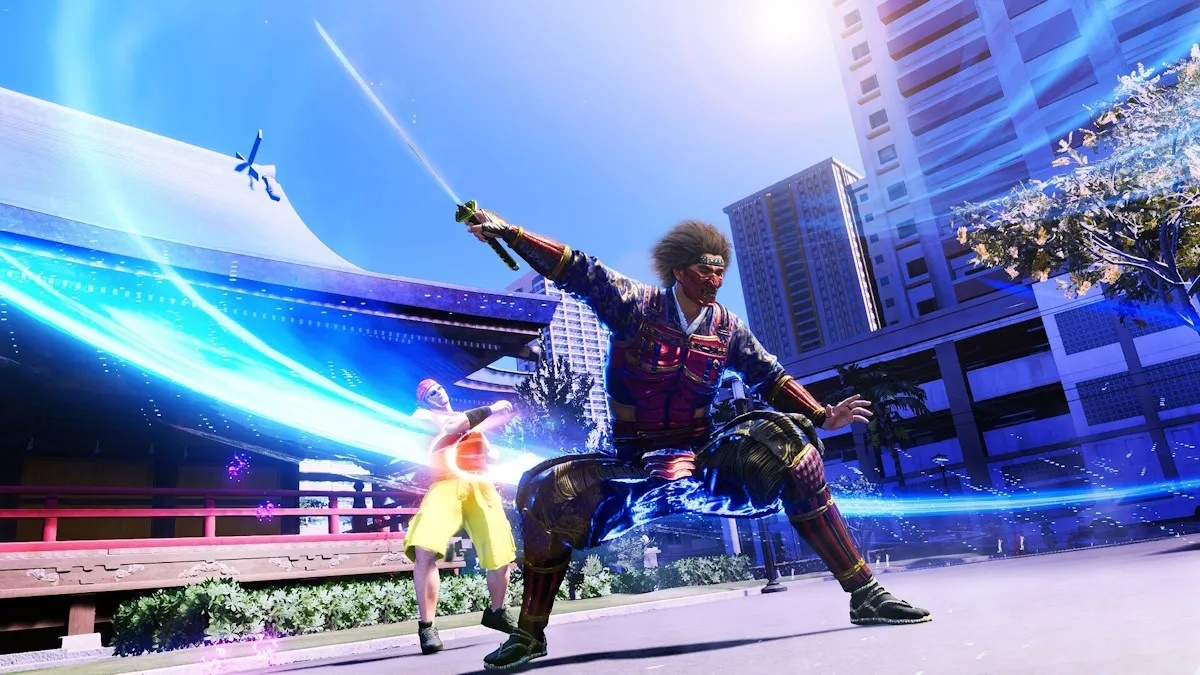Today, Yakuza — or rather, Like a Dragon — is pretty well known far and wide as a series of exciting, corny, and hammed-up RPGs by Sega. But history could have been much different. Back when the series was originally pitched, Sega “flat-out rejected” it.
In an interview (via Automaton) with Like a Dragon series creator Toshihiro Nagoshi, the former series head recalled the time Sega smacked the idea off the table like a curmudgeonly cat. According to Nagoshi, Sega was desperately seeking new video game ideas with worldwide appeal.
“This led to a mindset of making games that would appeal to the masses, games that could sell anywhere and to anyone. Many producers, including myself, thought this way,” Nagoshi said.
For anyone who has played a Like a Dragon game, or even looked at a set of screenshots, can tell you that the saga of Kiryu Kazuma and friends ain’t that. (Even if it should be.)

Like a Dragon came to be during a tumultuous time for Sega
Sega initially said no, and it’s no surprise why. Like a Dragon, directly translated from its Japanese name of Ryu Ga Gotoku, wasn’t strictly designed for Western audiences. The game took place in a small part of Tokyo, rich with attractions and references that only those fluent in Japanese culture may understand or recognize. It starred a former member of a Japanese crime syndicate who chewed corny tough-guy lines while balancing his time with a conspiracy story, taking care of a puppy, playing pachinko, and getting toilet paper for a man stuck in a park bathroom.
The series was, and still is, an eclectic blend of silliness and drama, but Sega didn’t see the potential right away.
“Of course, it was flat-out rejected,” Nagoshi explained. “After all, it was completely contrary to what I mentioned earlier about attracting the masses. Children wouldn’t be able to play it, and it wasn’t catered to women nor overseas audiences. In this sense, there was no way for it to be approved without resistance.”

Nagoshi was persistent and, eventually, Sega relented. He said he was “quite forceful” in looking for approval. With Nagoshi always dressing like he crawled out of a Like a Dragon game himself, I guess I’m not shocked that Sega ultimately saw things his way.
It’s not like Sega was wrong from a business perspective, mind. Back in the early ’00s when LAD was being pitched, Sega had already likely given up the Dreamcast and was reeling over Shenmue‘s disappointing sales figures. The latter was known as the most expensive game ever made — a title it held for many years. The absurd Like a Dragon must have been viewed as an exceptionally tough sell for outside Japan.
But Sega definitely tried. The publisher went so far as to fully dub the original game in English, while bringing in Mark Hamill to voice Goro Majima, a role he may not even remember taking.

Yakuza, as it was called when it finally came to the West, also didn’t reach mainstream appeal for many years. The fourth mainline game in the series was nearly the last to cross the seas, as the Yakuza 5 localization almost didn’t happen. Regardless, with Yakuza 0 and Yakuza: Like a Dragon, the series is now firmly nestled into the zeitgeist on both the East and West. Nagoshi, however, has moved on and is making games for his new studio.
Fast-forward a couple decades and the latest game in the franchise is a smash hit for Sega. Like a Dragon: Infinite Wealth soared to 1 million sold within a week of its launch, outpacing the sales of its predecessors (and we loved it). The series, along with Persona and Sonic the Hedgehog, contributed to a 20% sales increase, Sega announced this month. Let’s be collectively glad the company eventually said yes.








